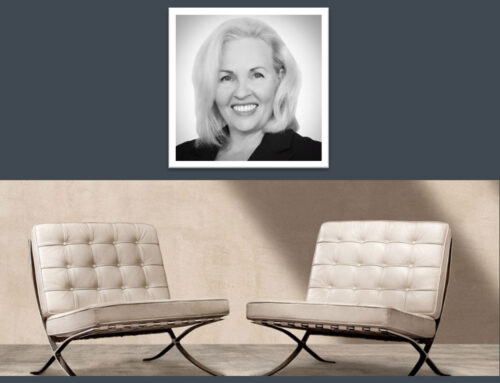
In BREATHE’s new series on leadership stories, we spotlight real experiences behind titles and job descriptions. This month, we hear from Claire Blake, CFO and COO at Queensland Investment Corporation and an ECI Partners coaching client, who spoke on the Leadership Challenges podcast about the steep climb into executive leadership and how coaching helped her find her footing.
When Claire was unexpectedly promoted to Chief Financial Officer, she thought she was being fired. Instead, she found herself at the edge of a new chapter, one she didn’t necessarily feel ready for. The story she shares is not uncommon: someone with strong technical skills gets handed a leadership title, but without the toolkit to lead at the executive level.
And this is where executive coaching makes the difference.
Claire’s early experience in the CFO role was filled with uncertainty. Delegation felt unnatural. Strategic thinking was vague and intimidating. Imposter syndrome was loud. “The feedback I kept getting was, ‘You need to think more strategically.’ And I thought, ‘But I don’t know how.’” What changed things for her was a combination of formal leadership education and executive coaching. Both challenged her, not by giving easy answers, but by forcing her to think, reflect and stretch.
The reality is that good coaching isn’t comfortable. It doesn’t hand you solutions. Rather, it holds up a mirror. “I went into it thinking the coach would tell me what to do. But that’s not what happens at all,” Claire said. “It’s like building muscle at the gym. It’s hard, it’s uncomfortable, but it’s how you grow.”
Organisations often talk about developing talent, but Claire’s story shows what that actually takes: giving someone a stretch opportunity and giving them the support to grow into it. Promotions alone don’t build leaders. But coaching helps close the readiness gap if people are willing to do the hard work.
Good coaching often creates a ripple effect that has a positive impact on company culture. Claire shared how she rebuilt trust and connection in a siloed finance business unit by creating a playful structure with colour-coded ‘houses’ that mixed teams, encouraged camaraderie, and sparked lasting relationships. “When people play together, they build trust. And trust is everything.”
She wants her leadership legacy to be built on that: Trust. “Do what you say you’re going to do. Honour your promises. Be approachable and sincere. Create psychological safety so people feel free to speak up, make mistakes and grow.”
Through coaching, Claire has refined her leadership focus to:
- Communicate honestly and often. Transparency – even when it’s imperfect – builds credibility.
- Be aware of your leadership shadow. People read your cues, even when you say nothing.
- Be kind to yourself. Leadership is hard. The pressure is real. Self-care isn’t indulgent – it’s essential.
Executive coaching can unlock leadership potential. But it’s not magic. It works because it demands something from you. Claire’s journey shows the payoff: confidence, impact, and a great team culture.
Listen to Claire’s podcast here:
To connect with us about executive coaching please contact us here.


